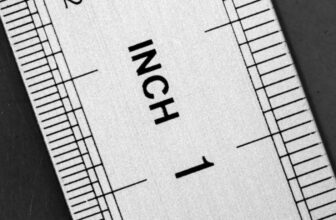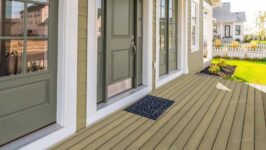
Wood vs. Composite Decking: An In-depth Comparison
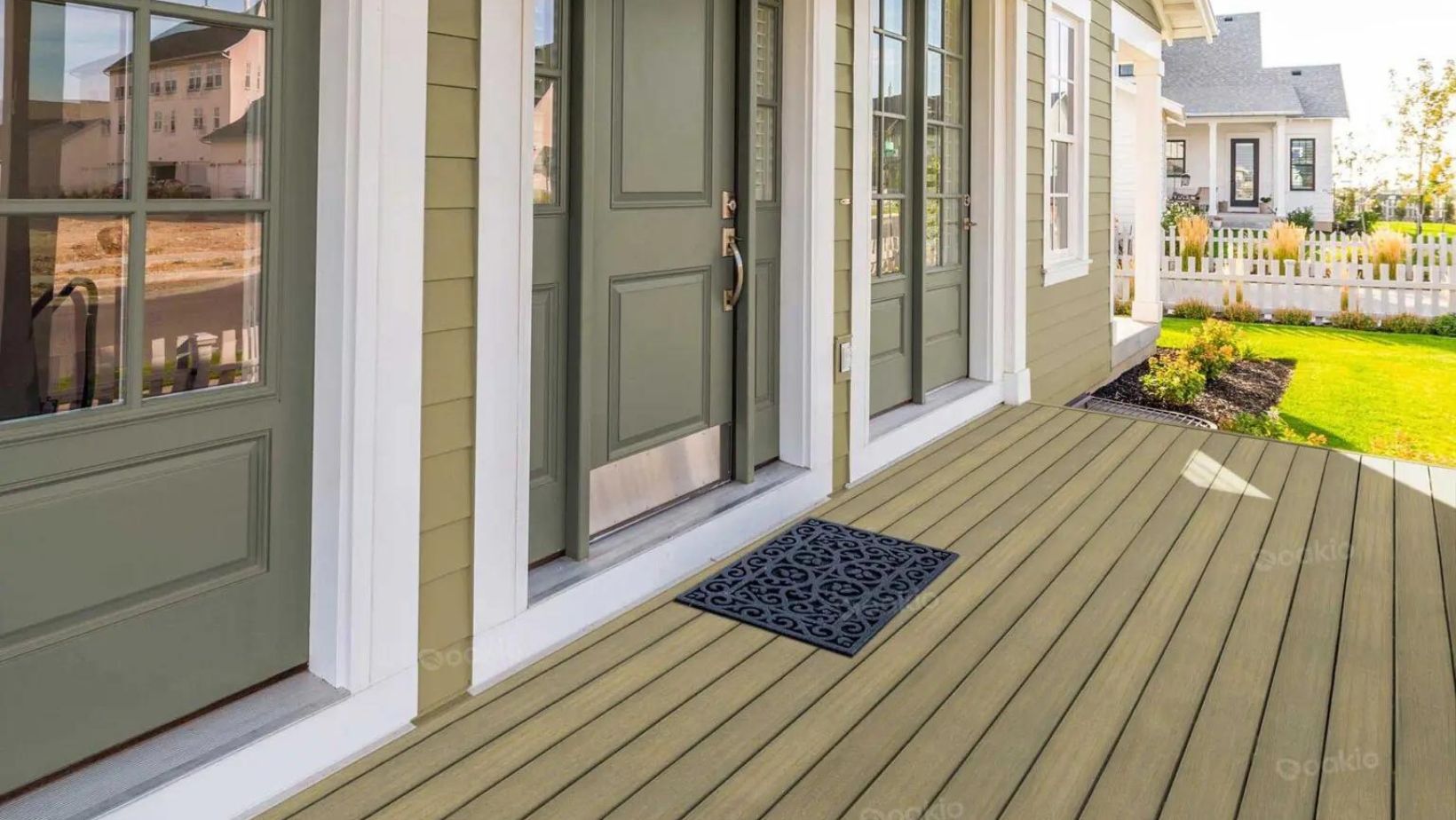
I’ve spent countless hours researching, comparing, and analyzing different decking materials. Today, I’m excited to share my insights on two popular choices: composite and wood composite decking. If you’re planning a decking project, this article is for you.
We’ll examine the pros and cons of these two materials and help you decide which is best for your home. Whether you’re a seasoned DIYer or a newbie homeowner, I’m confident you’ll find this comparison enlightening. Let’s get started on this journey of discovery, shall we?
Understanding Composite and Wood Decking
When examining composite and wood composite decking, it’s important to remember that each material possesses its distinct attributes. For instance, wood decking, such as pine, cedar, or redwood, boasts a classic aesthetic. It brings a touch of nature to your backyard, but at a cost, notably in maintenance. Wood decks require regular cleaning, staining, or painting to preserve their appealing look and feel.
On the other hand, composite decking, largely made from a mix of wood fibers and plastic, showcases its own set of benefits. For starters, maintenance is less of a concern, as the material is resistant to fading, staining, and rotting. Yet, these perks have drawbacks. Composite decks may be more expensive initially than their wooden counterparts.
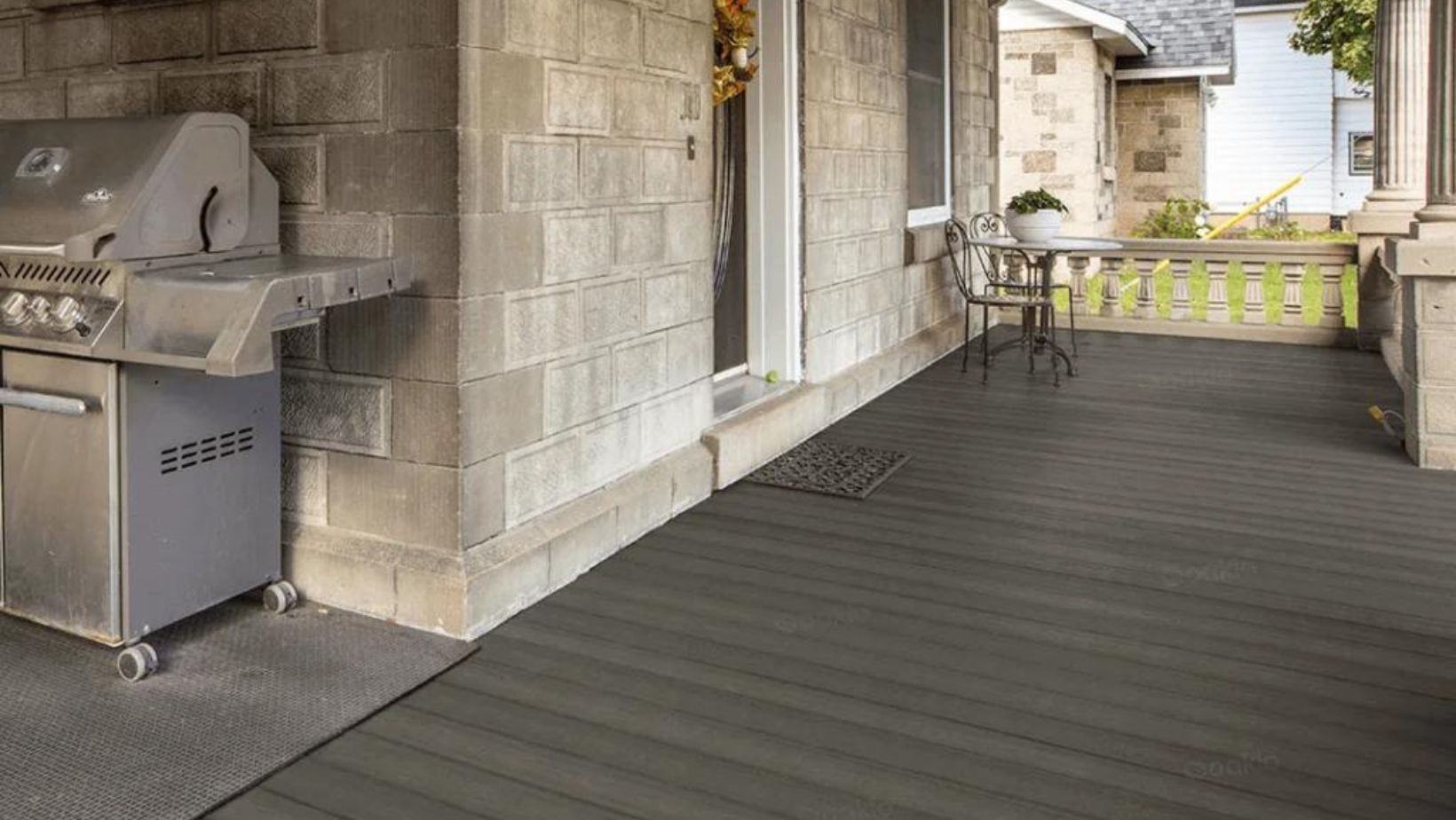
Knowing the characteristics of each material is crucial. The right decking choice lies in your preferences, budget, and maintenance commitment.
Advantages of Composite Decking vs. Wood Decking
Several essential elements show the pros and cons of composite and wood decking. Wood decking is naturally sensitive to deterioration and requires regular maintenance, whereas composite decking is insect-resistant and weather-resistant. Composite decking does not rot, peel, or decay and requires no regular staining, sanding, or sealing, unlike wood decking, which may be repaired and maintained but has a shorter lifespan.
| Feature | Composite Decking Advantages | Wood Decking Advantages |
| Weather Resistance and Durability | Highly resistant to weather changes, does not splinter or crack, resistant to moisture and sun damage, invulnerable to insects. | Natural susceptibility to weathering requires maintenance. |
| Maintenance and Longevity | It requires minimal upkeep, no regular staining, sanding, or sealing necessary, and is not susceptible to rotting, peeling, or decaying. | It can be repaired and maintained with basic care and a shorter lifespan. |
| Environmental Impact | It uses recycled materials, fewer trees are cut down, and decks are recyclable. | – |
Disadvantages of Composite Decking vs. Wood Decking
| Feature | Composite Decking Disadvantages | Wood Decking Disadvantages |
| Cost | Higher initial cost, 20% to 60% more expensive than wood. | Less expensive initially. |
| Physical Damage | It can get scratched and dented and is not easily repairable; replacement of entire boards might be required. | Prone to rot, pest infestation and weathering require regular maintenance. |
| Repairability | Limited repair options are costly and time-consuming to replace damaged boards. | Easier to repair and maintain, parts can be individually replaced. |
Comparison of Composite and Wood Decking
| Aspect | Composite Decking | Wood Decking |
| Material Composition | It consists of a mix of plastic and wood fibers and often mimics the look of natural wood. Examples: Trex, TimberTech. | Made of 100% timber, it includes tropical hardwoods like Ipe and softwoods like pine and cedar. |
| Durability and Maintenance | Resistant to warping, staining, and rot; requires only occasional cleaning. | Prone to warping, splintering, and weather damage may require annual deep cleaning. |
| Cost and Longevity | Higher initial cost but longer lifespan, making it cost-effective in the long term. | It is less expensive upfront but may incur higher maintenance costs; with good care, it can last many years with natural beauty. |
Conclusion
Choosing composite and wood decking ultimately comes from your personal preferences, budget, and maintenance commitment. Both materials offer unique advantages and disadvantages that homeowners must carefully weigh.
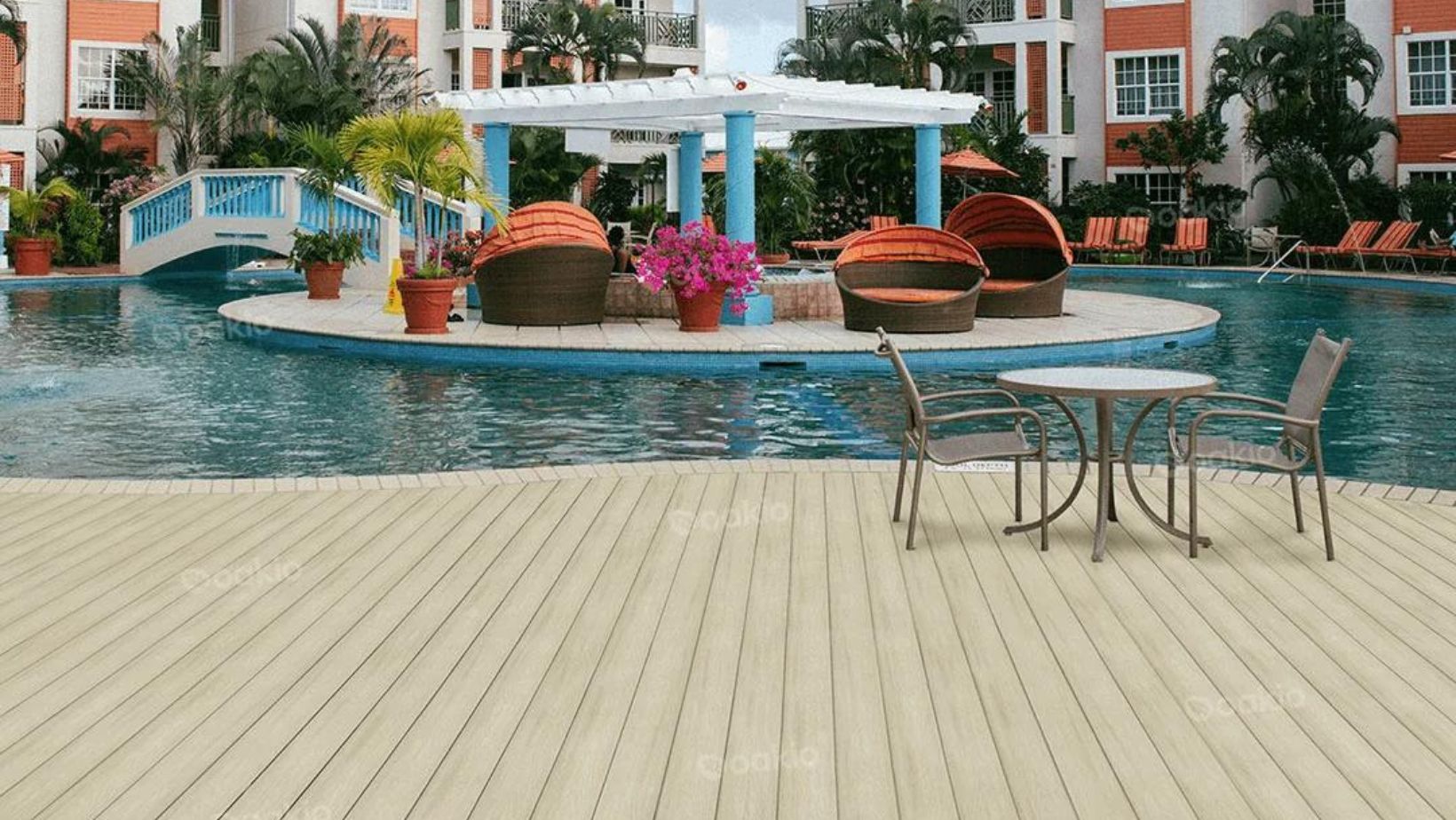
Composite decking shines in weather resistance and durability, requiring minimal upkeep to maintain its attractive appearance over the long term. Its resistance to fading, staining, and rot makes it a low-maintenance option that can provide years of enjoyment. However, the higher initial cost of composite decking may deter some homeowners.
On the other hand, wood decking offers a classic, natural aesthetic that many find appealing. While it requires more regular maintenance, such as staining and sealing, the ability to repair and replace individual boards easily can benefit. Additionally, wood decking tends to be more cost-effective upfront, making it an attractive choice for those with a tighter budget.
Ultimately, the decision between composite and wood decking should be based on thoroughly understanding each material’s unique characteristics and how they align with your specific needs and preferences for your outdoor living space. By carefully considering the factors discussed in this article, you can make an informed choice that will provide you with a beautiful and long-lasting deck.



